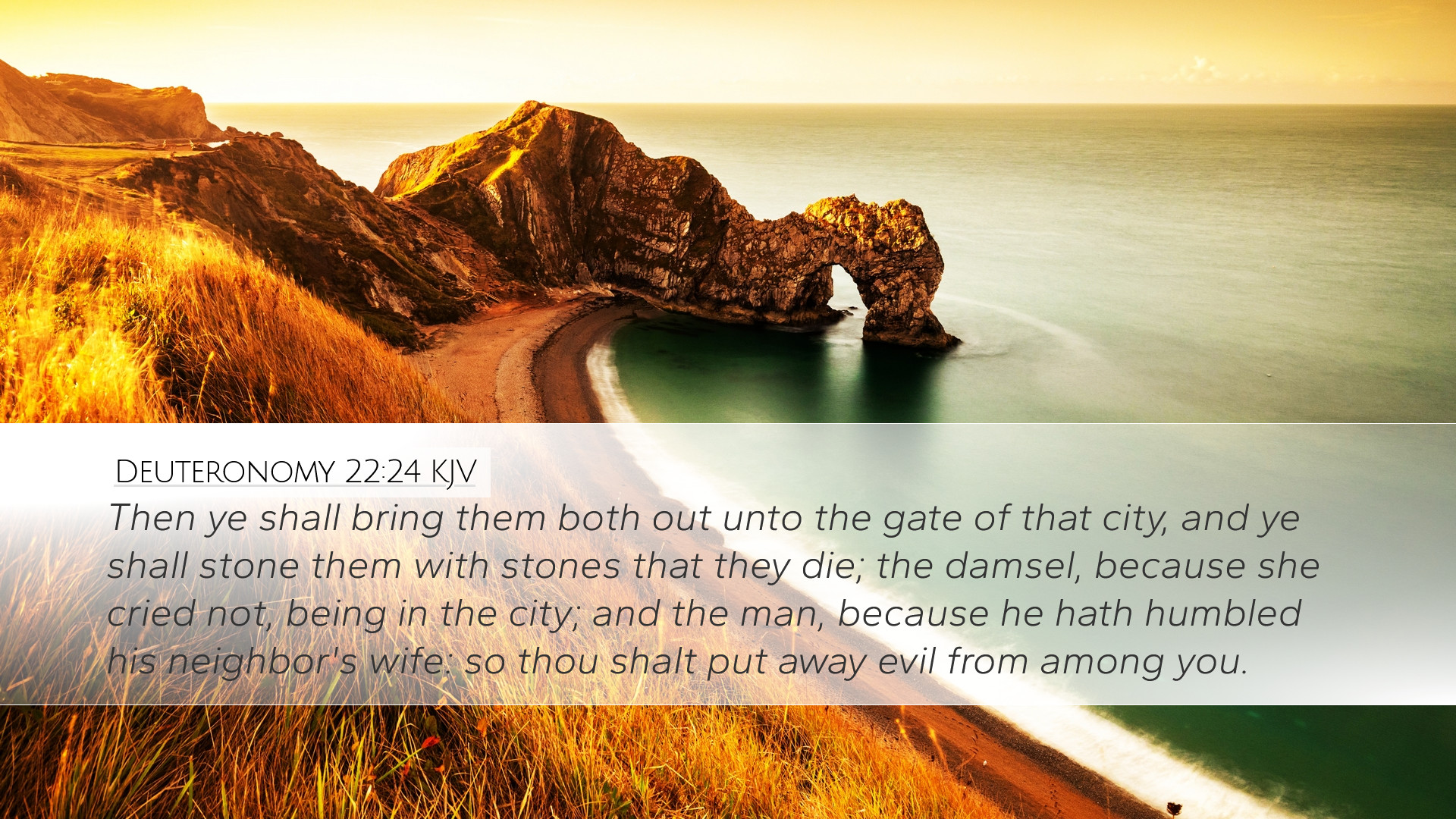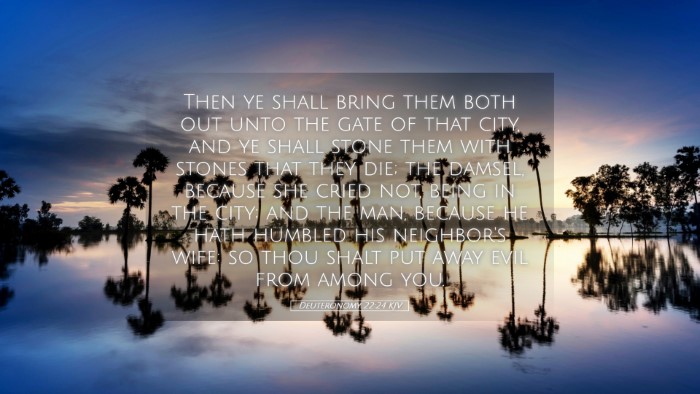Commentary on Deuteronomy 22:24
Verse: "Then you shall bring them both out to the gate of that city, and you shall stone them to death with stones; the young woman, because she did not cry out in the city, and the man, because he has humbled his neighbor's wife. So you shall put away the evil from among you." (Deuteronomy 22:24)
Introduction
This verse presents a severe legal directive aimed at addressing the issues of immorality, particularly in cases of forced sexual relations and the sanctity of marriage. Throughout biblical law, the underlying principles include maintaining social order and promoting righteousness among the people of Israel.
Contextual Understanding
Deuteronomy 22 contains various laws focusing on sexual conduct and marital fidelity. This specific verse addresses the case of a betrothed woman who is forced, highlighting the necessity of investigating the circumstances surrounding the act.
Henry emphasizes that God’s law is meant to deter the people from sin, especially in a matter that could have severe implications for familial and societal integrity. The requirement of death for both parties reflects the seriousness with which God views sexual sin, particularly in a covenant community.
Analysis of Key Themes
- The Nature of Sin: According to Clarke, sin cannot be tolerated within the community as it has communal implications. This severity aims to uphold communal purity and righteousness.
- Community Accountability: Barnes points out that public stoning serves as a dire warning to the community about the consequences of falling prey to immorality. The community's involvement underlines the shared responsibility for maintaining moral standards.
- Protection of Women: The verse reflects a protective stance towards women, particularly regarding their honor and virtue. A woman’s voice in her defense was significant, and the absence of her outcry indicated an inability to seek help in dire situations.
Theological Reflections
This law reveals God’s sovereign will and His intention to create a holy people. The treatment of social misconduct is not only judicial but also represents God’s desire for humans to live in peace and righteousness. Matthew Henry notes that principles of justice serve to root out corruption, ensuring that evil does not gain a foothold among God's chosen people.
Moreover, the thematic link between the law and the New Testament underscores the evolution of understanding sin and grace. While the immediate punishment appears harsh, the revelation of God’s mercy through Christ shows the depth of sin and the breadth of grace. This reflects a dual understanding of justice and mercy in God's character.
Practical Implications for Today
For pastors and leaders, this text serves as a call to not only uphold the standards of Scripture but to also exercise grace and wisdom in their application. The seriousness of the law calls for a balanced approach to discipline within the church, ensuring that it leads to restoration rather than condemnation.
Moreover, scholars exploring this text from a socio-historical perspective will find richness in how laws were instrumental in shaping societal norms and addressing injustices, especially concerning vulnerable populations like women.
Conclusion
In summation, Deuteronomy 22:24 serves as a critical reminder of the gravity of sin and the importance of communal integrity within the covenant community. The insights drawn from the commentaries of Henry, Barnes, and Clarke not only illuminate the text but also challenge contemporary readers to reflect on the implications of justice, communal involvement, and the overarching narrative of redemption within the biblical canon.


